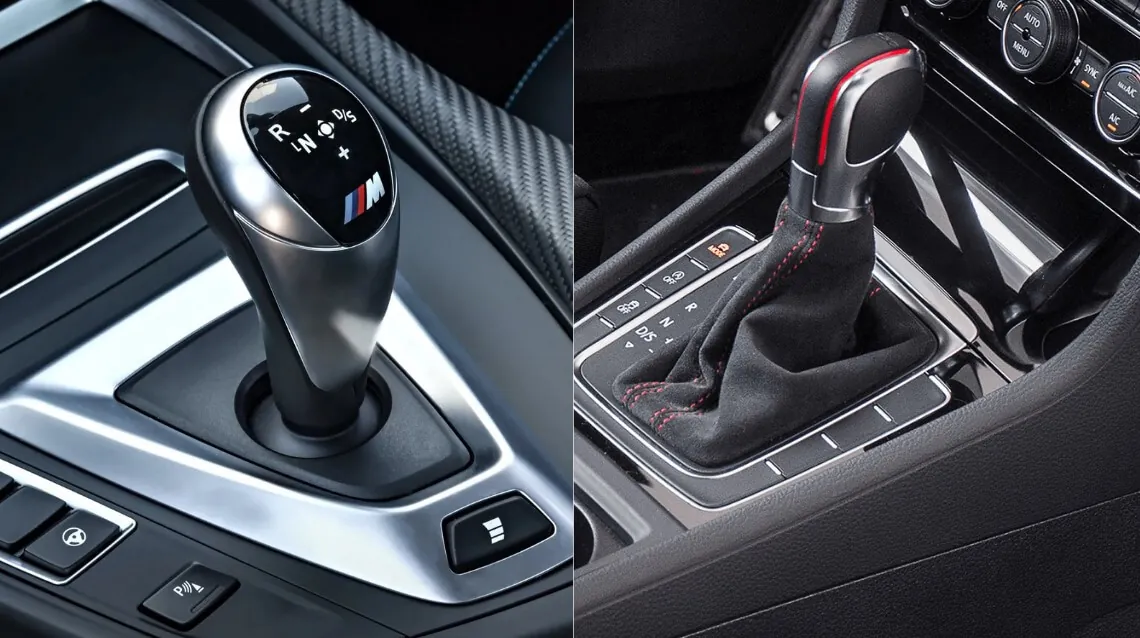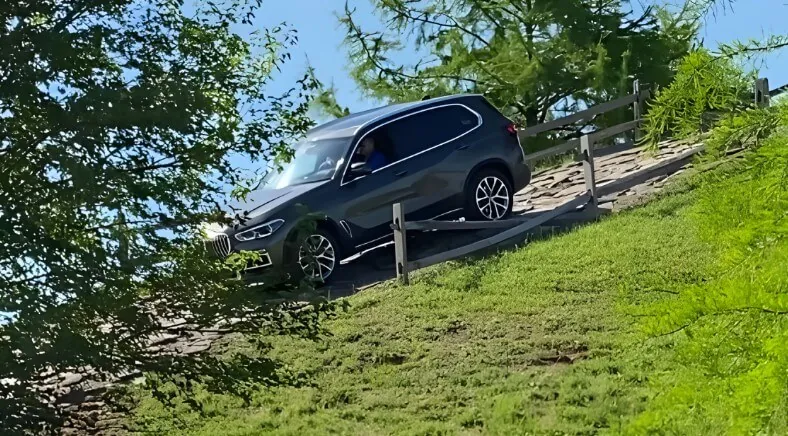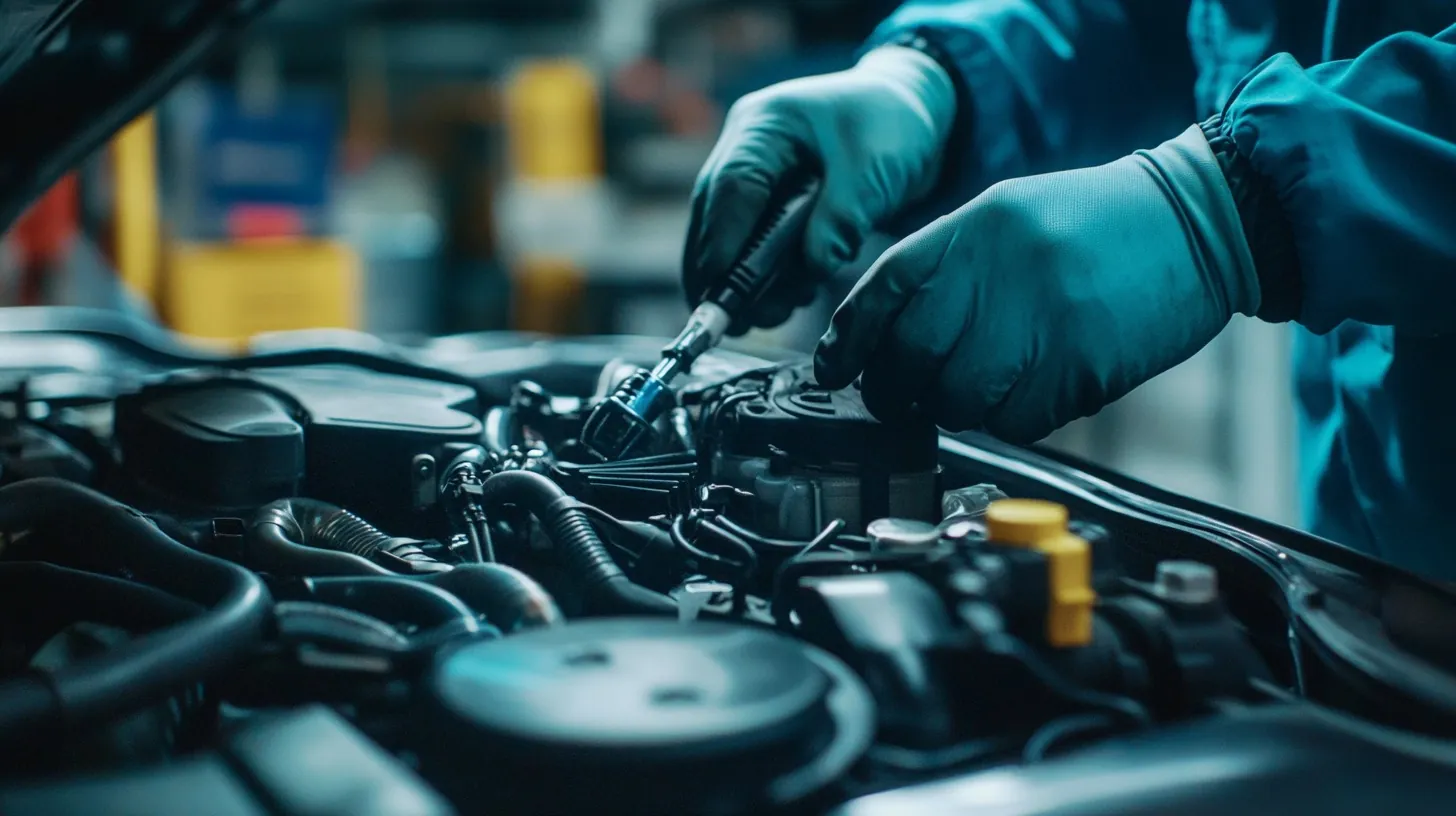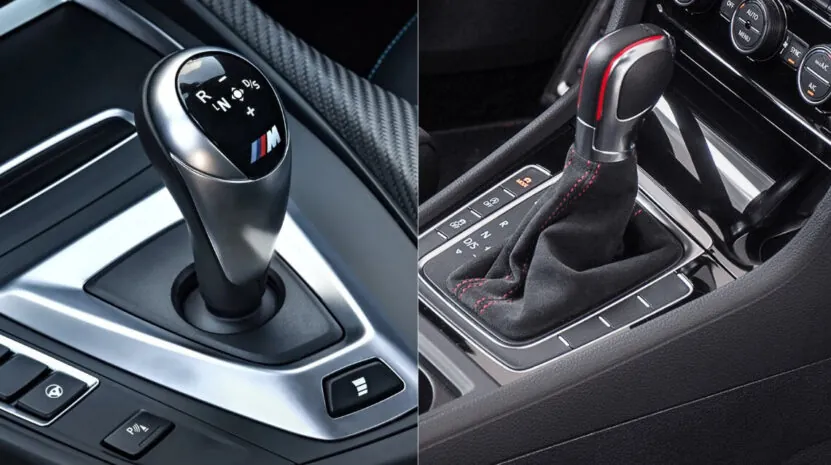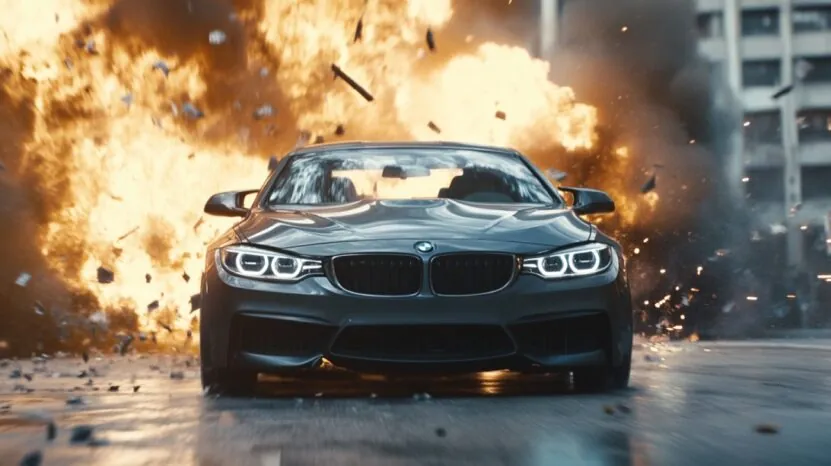
Share Post:
Launch Control in BMW vehicles functions as a high-performance acceleration assistant. It allows drivers to maximize traction and minimize wheelspin during hard launches, often used in drag racing or track scenarios.
BMW’s approach to Launch Control reflects its commitment to performance engineering. Unlike standard systems that simply allow full-throttle starts, BMW integrates electronic aids and transmission logic for optimized launches.
Models equipped with this system include a range of M-series cars and other performance variants, particularly those featuring the 8-speed M Steptronic transmission.
Each model may include different activation procedures and conditions, depending on drivetrain configuration and transmission type.
How BMW Launch Control Works
Pushing a BMW to its performance limits requires more than horsepower alone. Launch Control bridges the gap between driver input and vehicle output by coordinating several systems to deliver sharp, consistent acceleration.
Every component, from the engine to the transmission, must align before the system unleashes the full potential of the car’s drivetrain.
General Activation Process in Automatic BMWs
Activating Launch Control in a BMW with an automatic transmission isn’t as simple as mashing the gas.
Strict parameters must be met before the system gives the green light. The car must come to a complete stop. Engine temperature must reach optimal levels.
Steering must remain straight and unengaged.
- Bring the vehicle to a full stop on a flat surface.
- Allow the engine to reach proper operating temperature.
- Activate M Dynamic Mode (MDM) using the traction control settings.
- Shift the Drivelogic system into S3 mode to enable aggressive shifting.
- Press and hold the brake pedal firmly with the left foot.
- Fully depress the accelerator with the right foot and wait.
- Once the dash displays “Launch Control Ready,” maintain both inputs.
- Release the brake pedal while keeping the accelerator pinned.
Even a small mistake in the sequence can abort the process. MDM must be enabled first, not after entering S3 mode.
Engine heat needs to be just right, not cold, not overheated. Steering input must be zero, which means no hand adjustments during the sequence.
Timing, accuracy, and conditions all matter. Drivers must approach the system with deliberate control.
Differences in Transmission Types
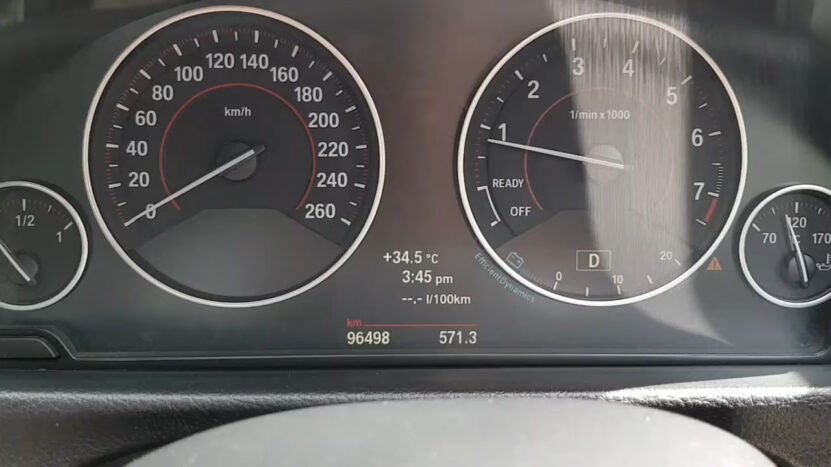
BMW offers Launch Control on both traditional torque converter automatics and M Steptronic transmissions, but performance varies.
- Faster shifts
- Better torque regulation
- Consistent launch RPM control
During a launch, M Steptronic holds engine revolutions around 2,700 rpm, creating a perfect mix of power and grip. Once activated, the system governs torque delivery precisely to reduce wheelspin. Shifts occur automatically and rapidly, tuned to maintain peak performance without driver input.
Traditional automatics, though still competent, handle launches with slightly more hesitation. Torque delivery may not be as refined, and upshifts may lack the immediacy seen in the M transmission.
Some models allow Launch Control in a simplified form, but performance enthusiasts gravitate toward M Steptronic-equipped vehicles for the best experience.
Each transmission type shapes the Launch Control behavior. No manual shifting is required during a launch, and throttle modulation is minimal. Once engaged, the system takes over with ruthless efficiency, assuming every parameter aligns perfectly.
Model-Specific Launch Control Features
Different BMW models handle Launch Control with their own set of rules and systems.
While the general principles remain consistent, actual functionality varies depending on drivetrain, transmission type, and software calibrations.
Performance trims like the M3 and M4 come with enhanced tuning, while xDrive-equipped models benefit from added traction.
BMW M3 and M4 (G80/G82)
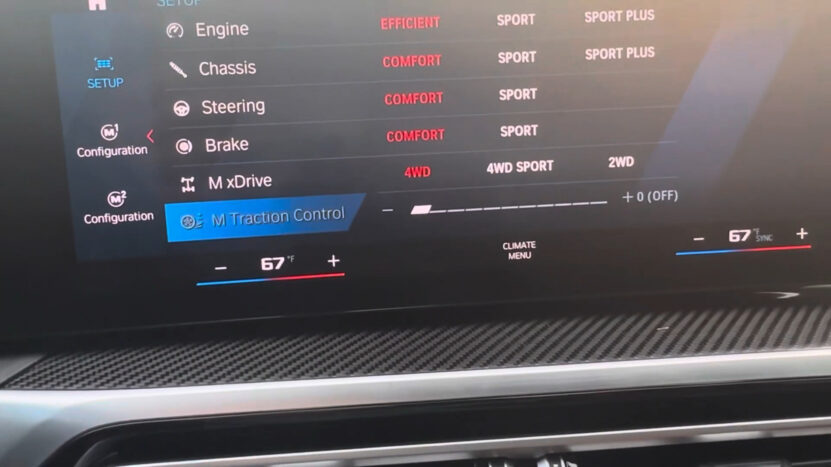
BMW’s M3 and M4 in the G80 and G82 generations feature Launch Control that emphasizes aggressive but controlled acceleration. These models rely on the 8-speed M Steptronic transmission, calibrated for track-level responsiveness.
Engine torque, shift timing, and RPM targets are all electronically optimized for maximum traction under ideal conditions.
- RWD models: Start in 2nd gear to reduce the risk of wheelspin on hard launches.
- xDrive models: Begin in 1st gear, leveraging all-wheel-drive traction for a stronger initial burst.
System access comes with conditions. MDM (M Dynamic Mode) cannot be active, drivers must fully disable DSC (Dynamic Stability Control). It increases the risk factor but allows for greater performance control.
- Transmission and brake temperatures rise rapidly under repeated launches.
- Launch Control will deny further attempts if sensors detect excessive heat.
BMW M3/M4 G80-G82 Key Launch Features:
- Uses 8-speed M Steptronic transmission.
- RWD launches in 2nd gear.
- xDrive launches in 1st gear.
- MDM mode not compatible; DSC must be fully disabled.
- Launch Control is disabled temporarily if internal temperatures exceed limits.
BMW Models with xDrive
xDrive-equipped BMW models offer a different flavor of Launch Control. While not as track-leaning as the M cars, they still benefit from advanced torque management. xDrive brings a major advantage: launch stability.
Launch Control in these models activates only in specific drive modes. Performance launches require either 4WD or 4WD Sport to be selected. Attempting to engage Launch Control in Comfort or Eco modes will yield no result.
Many xDrive systems with adjustable drivetrains also support burnout mode. The mode enables 2WD rear-wheel action for tire spinning, primarily for tire warming or visual flair. Enabling it requires DSC to be turned off and the system to be manually placed in 2WD.
Performance is still subject to the environment and system status. Low temperatures, worn tires, or steering input will prevent the feature from activating.
- Requires 4WD or 4WD Sport mode.
- An optional burnout mode is available in 2WD with DSC OFF.
- Stronger launch traction than RWD counterparts.
- Conditions must be perfect: no steering angle, warm engine, and proper mode.
- Multiple failed attempts may lock out the system temporarily.
Safety and Limitations
Launch Control systems in BMW vehicles are engineered for controlled environments and high-performance driving. They are not designed for everyday use or casual acceleration on public roads.
Improper use may not only void warranties but can also lead to mechanical damage or hazardous conditions. Several essential safety precautions and system limitations should be kept in mind.
Key points include:
Cooldown Intervals
After each launch, the system requires a cooldown period to prevent heat-related stress.
- Transmission
- Differentials
- Brakes
Overheating may lead to temporary deactivation of Launch Control or even permanent wear on expensive driveline parts.
Road Surface Restrictions
- Wet pavement
- Snow or ice
- Uneven or gravel roads
Reduced grip conditions increase the risk of traction loss, fishtailing, or unintended directional instability.
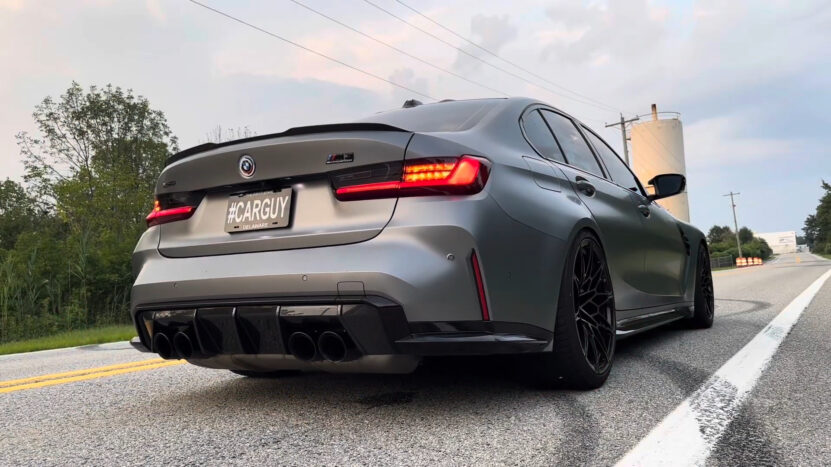
Track-Only Recommendation
- Closed-course facilities
- Track days with proper safety precautions
Public road usage exposes both drivers and bystanders to unnecessary risk.
Long-Term Wear and Tear
Aggressive take-offs exert more strain on driveline components than standard driving.
- Clutches
- Mounts
- Axles
The cost of premature wear often outweighs the short-term thrill unless used in controlled and limited circumstances.
How to Identify if Your BMW Has Launch Control
Not every BMW model includes Launch Control as a standard or even optional feature.
It is primarily offered in performance-focused models such as M-series vehicles or those equipped with M Sport packages and high-output drivetrains.
Before attempting activation, verification is essential. Several ways to check are outlined below:
iDrive Manual Lookup
Navigate to the Driving Dynamics or Sport Features section of the digital iDrive manual. If Launch Control is present, instructions for activation will be listed.
Check for System Prompts
- “Launch Control Ready”
- “Hold Brake and Apply Full Throttle”
Absence of such prompts may indicate the feature is not installed.
Production Year and Trim Level
Not all trims across a model line are equally equipped.
- Some early M340i models might not include Launch Control.
- Later production years may have added it as standard equipment.
- VIN-based lookup is the most accurate method to avoid misinformation.
Summary
Launch Control offers a sophisticated tool for enhancing BMW’s performance driving capabilities. Its benefits shine most during controlled acceleration scenarios where consistency and speed matter.
Drivers who understand how and when to use Launch Control will extract the most value while minimizing risk. Track environments and performance events represent the best opportunities for using it effectively.
Respecting safety protocols and system limitations ensures both performance and reliability over time.
Related Posts:



